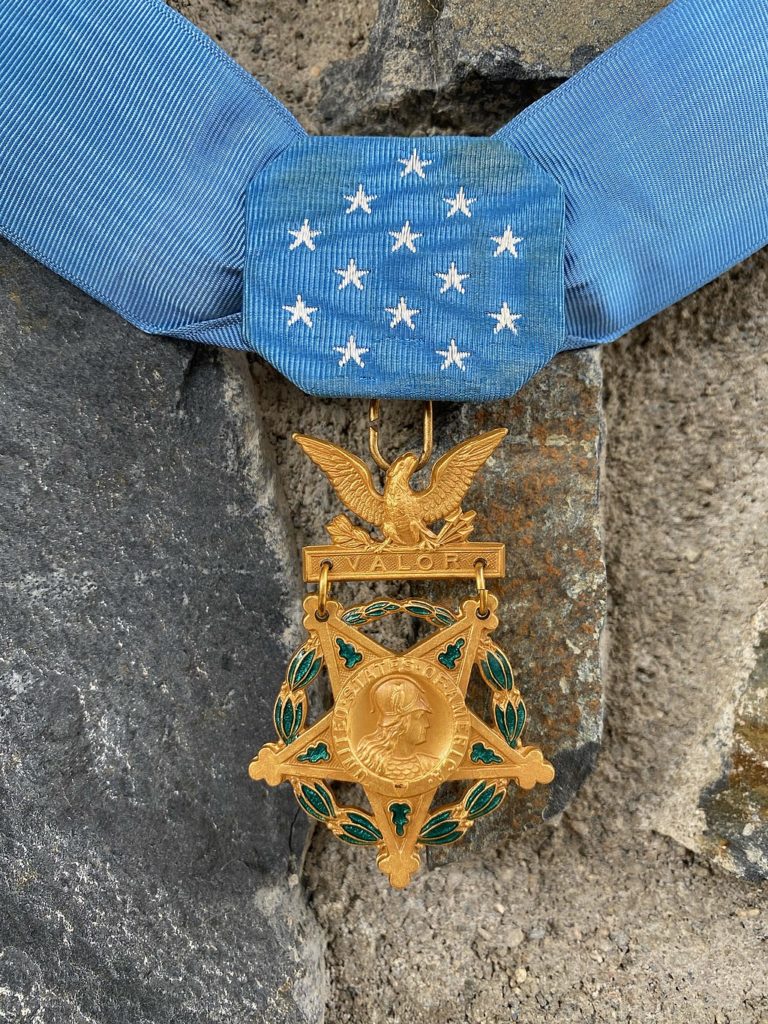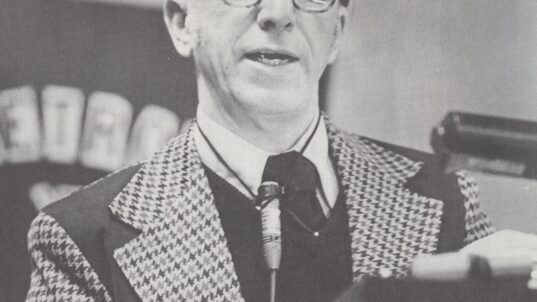
Alexeinikolayevichromanov, CC BY-SA 4.0, via Wikimedia Commons
Private Burton Holmes was a Black U.S. soldier fighting in France during World War I. He and his fellow soldiers were confronted by a surprise attack from the Germans. Burton’s gun malfunctioned and he was badly wounded, He returned to the command post, but he refused treatment. Instead he returned to the front line with a new rifle. He was subsequently killed while encouraging his fellow soldiers to advance.
His fellow soldier, Corporal Freddie Stowers, also embraced the “try-or-die attitude” of all their company of troops. He too was mortally wounded but continued his advance. He died as he led the unit. Freddie Stowers was also African-American.
Both Holmes and Stowers were recommended for the Medal of Honor, the highest military decoration for U.S. armed forces. Holmes’ recommendation was denied even though his white comrades in Company C gave testimony to his bravery. He was awarded a lesser medal, the Distinguished Service Cross. Stowers’ recommendation was “lost.”
General Pershing, the head of the U.S. forces in World War I, had given instructions to the French military leaders on how to handle the African-American troops under their command. Basically the instructions were a perpetuation of the Jim Crow laws of the South. Focused on maintaining a racial hierarchy of white superiority, the instructions can be summarized as: “You don’t treat blacks with too much respect, you don’t give them compliments in front of white officers, you don’t treat them too well, because you don’t want them to come home and be disappointed.”
Freddie Stowers recommendation was “found” 73 years later and he was awarded the Medal of Honor posthumously. Holmes has yet to receive the Medal of Honor although Tim Scott, U.S. senator from South Carolina, Holmes’ home state, has agreed to “research it more.”
Was this situation equitable? Of course not!! Clearly, when it comes to recognizing valor on the battlefield or other significant contributions to society, a person’s race, ethnicity, gender, sexual orientation, or other personal traits should not matter. But the failure to recognize Holmes and Stowers for their valor in the early 20th century is still a problem in the 21st century.
How might we better address these and other ongoing inequalities created by both historical and current policies? How do we ensure equity? How do we change a culture bent on enforcing social hierarchies? We’ve tried legislation, and it has been partially successful. But legislation is static. How do we create and sustain a growing culture of equity?
To better nurture a culture of equity, how do we make equity a matter of conscience for all? Certainly faith and other pathways for moral development should play a role. Parental guidance and education should also be helpful. But the challenge of better nurturing a culture of equity has become more difficult as we see our society moving back in time when it comes to what we believe is equitable. Just look at how the Supreme Court has rolled back voting rights protections.
Just imagine how we might develop a shared sense of what is equitable. What role can each of us play? How might we constructively channel our outrage at inequalities in our society? Just imagine how each of us can become a daily role model for equality.
* * *
“Equality is the soul of liberty; there is, in fact, no liberty without it.” – Frances Wright (social reformer)
This is part of our “Just Imagine” series of occasional posts, inviting you to join us in imagining positive possibilities for a citizen-centered democracy.



